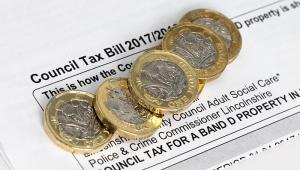21 November 2003
District councils cried foul and other local authorities renewed threats of council tax rises and service cuts in spite of the proposed 4.7% increase in revenue support grant announced by the government this week.
Under the provisional settlement announced on November 19, the total formula grant is being increased to £45.8bn – an increase of 4.7% – while overall government support has risen by 6.5% to £54.1bn.
In addition, £750m is to be released from ring-fenced grants to give councils increased flexibility over frontline decision making.
The overall increase also includes an extra £300m intended to ease pressure on non-education services.
Local government minister Nick Raynsford described the deal as a 'good settlement' for councils, and the Local Government Association conceded that the extra funds went halfway to closing the £800m funding gap it recently identified, adding that the reduction in ring-fencing was a sign of progress.
But the LGA said district councils had been 'short-changed' by the settlement. Although no top-tier authority will receive an increase below 3.5%, the ceiling for district councils has been set at 2.8% – a figure the LGA's Independent Group chair, Milner Whiteman, described as 'disastrous'. Most will receive a below-inflation increase.
'For districts, there is no sweetener to help us swallow the bitter pill. The choice is only about how much to cut services and how much to increase the council tax,' Whiteman said.
LGA chair Sir Jeremy Beecham added: 'District councils deliver vital services, such as waste and environmental services. If they are forced to put up the [council] tax to protect these services, they should not be blamed for doing so by the government who pushed them into this dilemma.'
But Raynsford said the settlement was sufficient to set council tax at 'reasonable' levels. He refused to rescind his threat to cap those councils introducing 'excessive' increases. 'I have said many times the current trend in council tax rises is unsustainable. We do have targeted capping powers and we are prepared to use them.' he said.
The LGA said there were 13 authorities that would have to 'passport' their entire grant increase to schools, leaving nothing for other services including Wandsworth, Milton Keynes and Surrey.
A further 18 would be left with little room for manoeuvre once they had delivered the minimum funding guarantee. 'Strong words and capping threats from government will simply cause weary bewilderment. If your grant is less than inflation, or you are forced to pass any increase you have to schools, where else are you expected to go?' Beecham said.
CIPFA warned that councils would struggle to balance budgets in 2004/05 without substantial council tax increases. The institute said that if authorities wanted to keep council tax rises below 10%, budget increases would need to be no more than 5.7%. It noted that even small changes in the amount of government support made it difficult for councils to set an equitable council tax.
London's local government leaders said the capital was still suffering from last year's poor settlement. The Association of London Government warned that environmental and leisure services were most likely to suffer.
PFnov2003



















